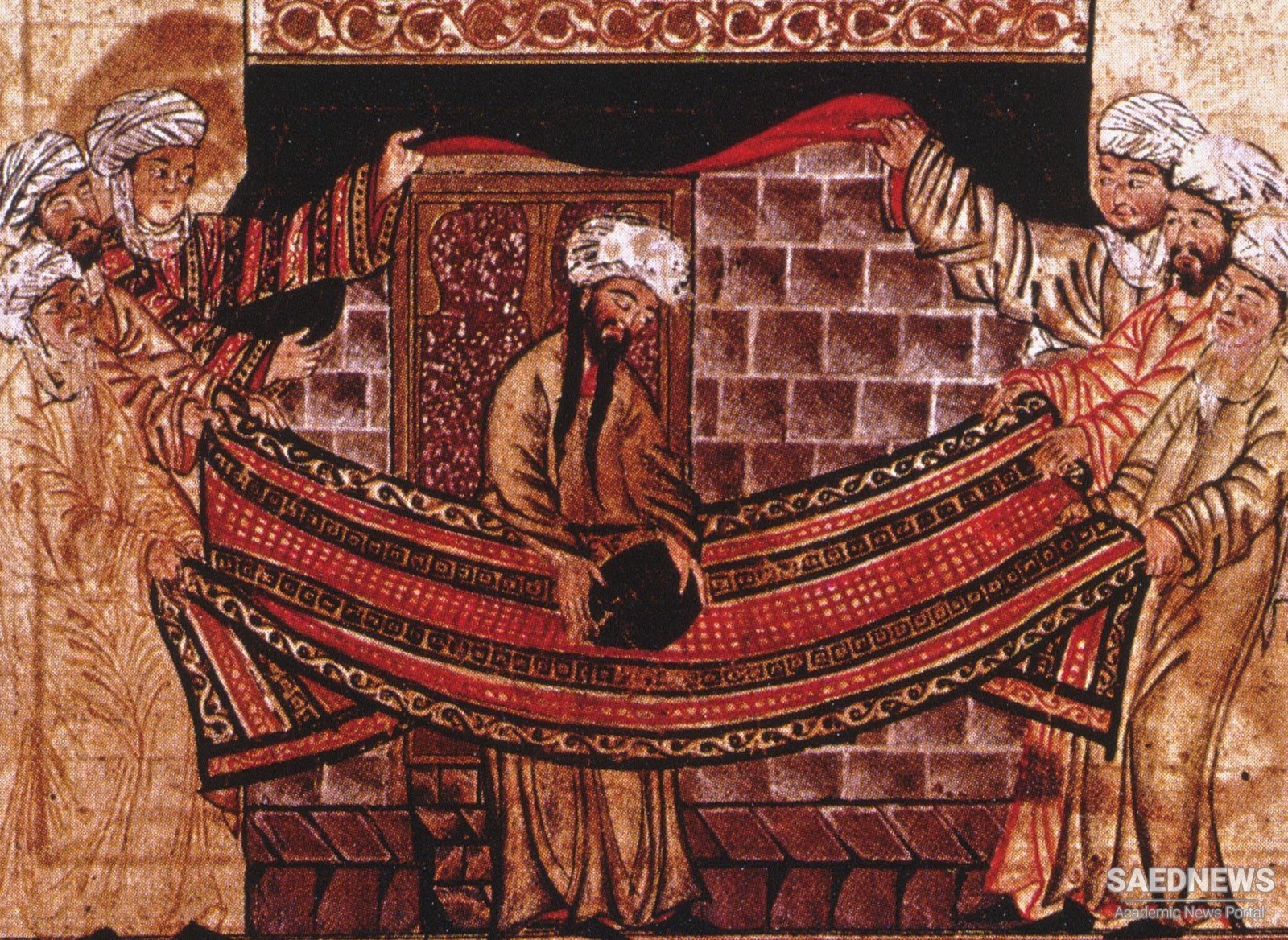Hence, the state (ḥāl) of highest happiness is the state It is in Itself, for It has no need of anything external to give It perfection and grandeur. Those beings which, in the first creation, were found complete, and which are pure intellect (ʿaql-i maḥḍ), and which are not like us, having no need of external things, and are not attached to lower things, are occupied with their own perfection, which is intelligible to them, and in that which they contemplate of the perfection and splendour of Necessary Existence, which illuminates them in the mirror of their substance.
Their ultimate happiness and delight is the happiness in which they are in contemplation of Necessary Existence, in addition to the happiness which they have in the perception of their own perfection. They are occupied with the highest happiness and delight, because, eternally, they do not turn from the highest to the lower aspect [of what is]. Their whole selves (khudī-yi khwīsh) are consecrated to the contemplation of grandeur, that is, the regal presence, and to receiving the greatest happiness.
There is no sadness for them, for the cause of our sadness is another diversion, either an instrument (ālat) of pain or an evil instrument. In summary, there must be matter which is receptive to change, and moreover sadness does not occur without a cause, and whatever is subject to a cause which it receives is mutable. Fortunate is the man who seeks that state for his own life (jān), when it becomes separated from the body, in which he finds happiness. If he seeks to acquire the opposite state, he has, rather than happiness, pain, although he has, at present, no idea of the form of that pain, as when one has not experienced the pain of a burn from a fire, but knows of it by hearsay. How well has spoken the leader of the wise, and the guide and teacher of the philosophers, Aristotle, on this matter, i.e., that happiness which Necessary Existence has in Itself, and all things issue from It. He said:
If the First of all things perpetually has from Itself the same amount of happiness which we receive from It, at any given time when we contemplate It and meditate upon Its grandeur and present to ourselves a truth (ḥaqqī) which speaks of It, there is a great magnificence within It. This amount which our understanding conceives and which our state (ḥāl) necessitates is not at all comparable to that which It has in Itself, which is more magnificent and wonderful. Still more, the First Being is happiness, complete in Its own self (binafs-i khwīsh). Perhaps such a state should not be called happiness, but there is no word among known words which better conveys this meaning.


 The Generosity of Necessary Existence
The Generosity of Necessary Existence














































